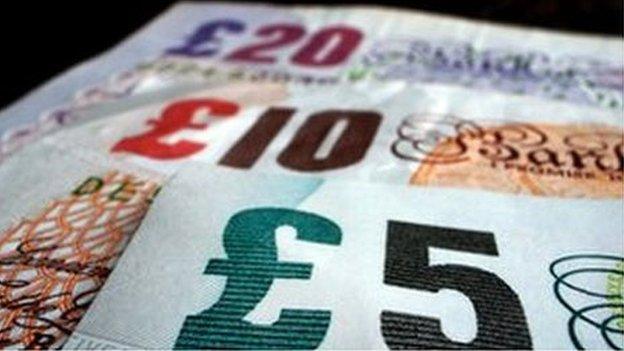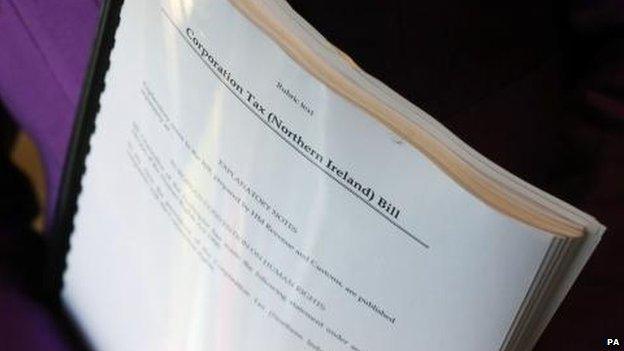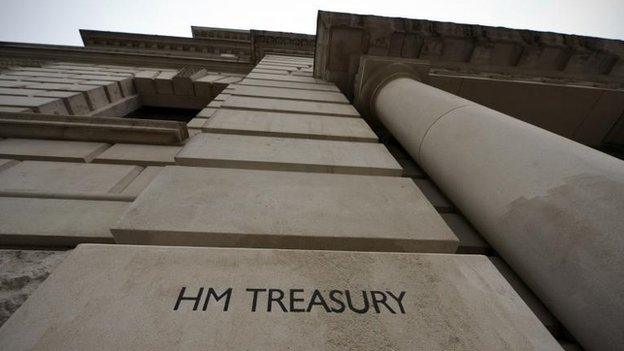Q&A: Corporation tax in Northern Ireland
- Published
A bill to allow corporation tax powers to be devolved to Stormont has been introduced at Westminster.
BBC News NI's Economics and Business Editor John Campbell looks at the issues.

What is corporation tax?

It is the tax that companies pay on their profits.
At the moment, it is levied at a rate of 21% in the UK, although that will be coming down to 20% in April.
In the Republic of Ireland it is just 12.5%

Why do Stormont politicians want to take control of the tax?

The major parties believe that cutting the tax will help tackle long-term problems in the Northern Ireland economy.
They think that if companies can keep more of their profits, it will unleash an unprecedented wave of investment and growth.

What is in the Westminster legislation?

The bill, external would grant Stormont the power to set the corporation tax rate over most trading profits.
It does not include non-trading profits, such as income from property.

What companies will be eligible to take advantage of a reduced rate?

Small and medium sized companies, in which at least 75% of staff time and costs relate to work carried out in Northern Ireland, will qualify.
If this test is not met, the company will continue to be taxed at the main UK rate.

What about large companies?
Large firms, such as multinationals, will need to have a "Northern Ireland Regional Establishment" (NIRE) - a fixed place of business, such as an office or factory, where it carries out its business.
Trading income arising from the NIRE will be taxed at the Northern Ireland rate.
The Treasury says "internationally recognised principles" will be used to attribute profits to the NIRE.

Are any businesses excluded?

Large parts of the financial services industry, including banks, will not qualify for the Northern Ireland rate.
The Treasury says that is because profits arising from lending, investing and reinsurance can be moved to a different geographical area without significant trading activity taking place there.
However, some "back office" activities will qualify.
Northern Ireland has some significant financial back-office operations, including Citigroup, CME and AllState.

How much will it cost to implement?

European rules do not allow developed regions like Northern Ireland to get a free lunch when it comes to tax.
A cut in corporation tax would mean less revenue is collected for the Treasury.
The rules mean that Stormont would therefore have to hand back a chunk of its annual budget to make up for that.
But until Stormont sets the tax rate, it is not clear how much would be cut from the budget.
Current estimates are between £200m and £300m.